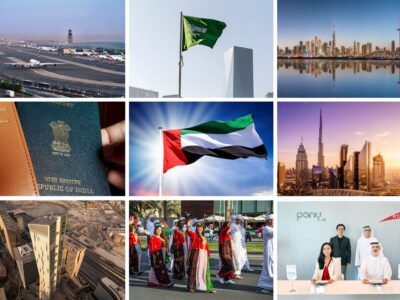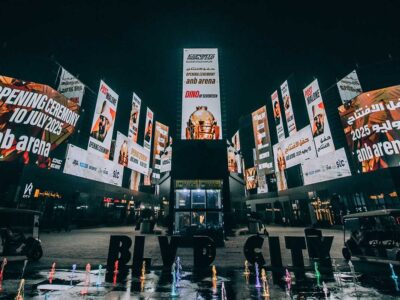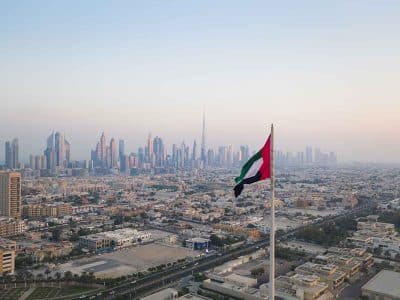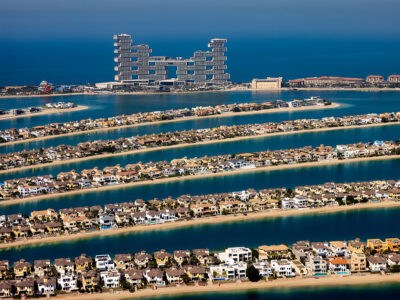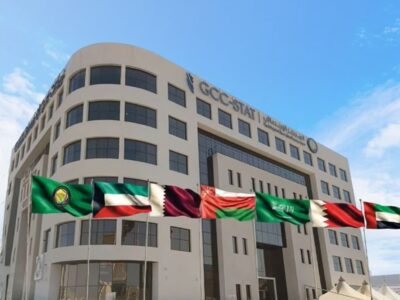|~||~||~|Unlike many of its neighbours, Bahrain’s crude exports are negligible, leaving its main oil earnings from refining. Petroleum products accounted for around 75% of the country’s total exports in 2005 compared to 61% in 2001. Bahrain’s 130 million barrels of proven oil reserves are all located in the onshore Awali field—one of the first to enter production in the Gulf in the early 1930s. However, production peaked at only around 75,000 barrels per day (bpd) and is currently at 35,000 bpd.
Although several potential sites have been identified in offshore waters, exploration work to date has proved disappointing. Exploration work was historically hampered by the fact that these sites lie in areas that were part of a long-running territorial dispute between Bahrain and Qatar. This dispute was resolved by a 2001 resolution from the International Court of Justice. To date, Bahrain has only offered exploration concessions to a handful of foreign oil companies.
Bahrain’s sole 250,000 bpd refinery is located at Sitra south of Manama. About one-sixth of the crude processed at the plant originates from Awali while the remainder is pumped from Saudi Arabia’s Abu Saafa offshore field via a 54 kilometre pipeline, half over land and half sub-sea. All production from the field is sent to Bahrain. Bahrain also receives smaller amounts of crude from several oil fields located around the Saudi city of Dammam.
In charge of the country’s refining operations, is state-owned oil company Bahrain Petroleum (Bapco). It first built the refinery in 1936 with a small capacity of just 10,000 bpd. This was subsequently expanded over the next decade following the 1945 opening of the underground crude pipeline from Dammam—at that time the largest commercial underwater pipeline in the world.
The Bahrain government took over the operation of the refinery in 1979 via a state-owned vehicle, Banoco (Bahrain National Oil Company), which was established in 1976. Seven years later, a light isomate unit was commissioned. In 1997, the government took over full ownership of the refinery and in 1999, Bahrain’s Supreme Oil Council decided to merge Banoco and Bapco into a new entity to be known as the Bahrain Petroleum Company, consolidating up and downstream operations in the country.
A major US $900 million upgrade programme was launched in 1998. This included the installation of a $430 million hydro-cracking unit by Japan’s JGC to increase low-sulphur diesel production to meet new European Union (EU) environmental requirements. The Japanese firm built a hydrogen unit, sulphur recovery unit and several other facilities. It also revamped the existing mild hydro-cracker and converted it into a 70,000 bpd unit with ultra-deep desulphurisation capability. As of mid-2006, all the elements of the upgrade programme had been completed.
Bapco raised more than $1 billion in financing for the upgrade project in several arrangements from various banks. It signed a $370 million package from a commercial banking consortium, $330 million via an Islamic lease facility, and $311 million in a third tranche guaranteed by Japan’s Bank for International Co-operation and the Nippon Export Credit Agency. Other banks involved in the financing included: BNP Paribas, HSBC Bank, Mizho Bank, Arab Banking Corporation, Gulf International Bank, National Bank of Bahrain, Kuwait Finance House, Dubai Islamic Bank and Arab Petroleum Investment Corporation.
The refinery has five crude distillation units as well as a mild hydrocracker, catalytic reformer, distillate hydro-treater and visbreaker. The refinery’s configuration is geared towards high middle distillates. It produces liquefied petroleum gas (LPG), naphtha, gasoline, kerosene, aviation turbine fuel, diesel oil, heavy lube distillate, fuel oil and asphalt. There are over 170 storage tanks with a total capacity of 14 million barrels. Products are sold locally and internationally. Bapco also supplies aviation fuel at Bahrain International Airport through its 60%-owned affiliate the Bahrain Aviation Fuelling Company (Bafco).
Bapco reported record profits in 2005 and was responsible for 70% of government revenues to the national economy. Sales of crude and refined products totalled 152 million tonnes.
Commenting on the results, chairman Sheikh Salman Al Khalifa said: “2005 saw the oil refining sector return to profitability, thanks to the combination of high product prices, sustained demand and barely adequate refining capacity worldwide. Bapco was able to take full advantage of this situation because we already had in place the skills and systems to respond in a dynamic way to the changing markets.
“Retail sales reached 7.4 million barrels and there were 4.3 million barrels of jet fuel sales. The company’s principal export market remains: GCC 30%; Africa 30%; Japan and Asia 18%; other Arab nations 7% and Europe 6%.”
Bapco has launched a $140 million project to “enhance” its environmental standards. Sheikh Salman said Bapco had also signed a major technical evaluation agreement with Thailand that includes a one year geographical and geophysical study to evaluate hydrocarbon potential in offshore blocks.”
In addition, the company has launched a $70 million waste water treatment project to help identify ways of reducing waste water and new treatment facilities so that the discharge quality will meet new laws.
Meanwhile, in August 2005, Bapco announced it had signed a joint venture agreement with Finland’s Neste Oil to produce high quality lubricant-based oil, which will be produced at the Bahrain refinery. The agreement calls for the construction of a new facility to produce 400,000 tonnes per year (tpy) of sulphur-free, very high viscosity index base oil that is used for blending top-tier lubricants. The design phase of the project was completed in early summer 2006 and the plant is expected to come on stream in 2008. Feedstock for the new unit will be supplied from Bapco’s low suphur diesel hydro-cracker unit. Neste Oil will be responsible for sales and marketing.
Te Sitra refinery is also home to a petrochemical complex run by Gulf Petrochemical Industries Company (GPIC)—a joint venture by several GCC states and owned by the government of Bahrain, Saudi Basic Industries Corporation and Kuwait’s Petrochemical Industries Company. GPIC uses Bahrain natural gas as feedstock to produce 400,000 tpy of ammonia, 600,000 tpy of urea and 400,000 tpy of methanol.
Bapco is also considering increasing naphtha production for use as feedstock in new petrochemical production. Existing production is mainly exported, but establishing domestic petrochemical production has been considered for some time.
In 2002, the company said it was studying the construction of a $1.3 billion petrochemicals complex adjacent to the refinery but no final decision has yet been taken. It has also been reported that Bapco had held discussions with Germany’s Linde to build a polymers plant producing produce polypropylene and polyethylene. The plant would take three years to build and create 500 jobs. Output would be marketed to the automotive sector.||**||
